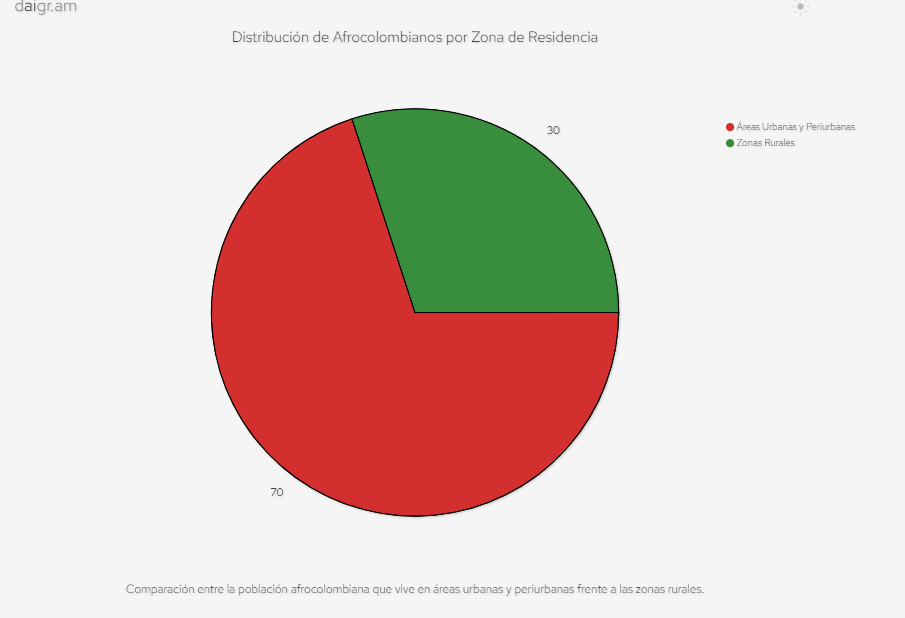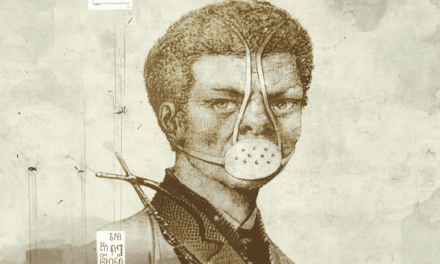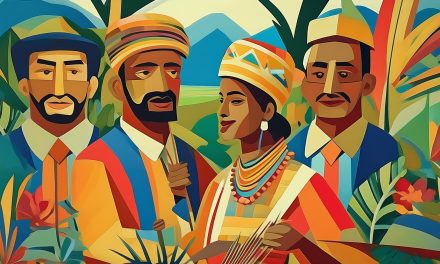Promesas, promesas, ¡oh, cuántas hemos escuchado! Especialmente cuando se trata de la escurridiza promesa de desarrollo para las comunidades afrodescendientes.
This article aims to take a critical and analytical look at Law 70 of 1993 in Colombia, a historical legislation that recognizes the territorial, cultural and economic rights of Afro-descendant communities. More than that, it aims to raise awareness among both the black and non-black population about the importance of such law and its role in the development of these communities.
To fully understand Law 70 of 1993 and its importance, it is crucial to immerse oneself in the historical and socio-political context in which it was created. The history of the law is intrinsically linked to the history of Afro-descendant communities in Colombia, a group that has suffered a long history of displacement and exclusion. Is Law 70 the path to social justice for these communities? Or is it just another superficial attempt at repair without real commitment to structural change?
La Importancia de la Ley 70 de 1993 para las Comunidades Afrodescendientes
Okay, folks, let’s set the stage. Imagine a world where promises are as plentiful as the number of times you’ve lost your keys. Yes, so many times!
Now, imagine a specific promise: development for Afro-descendant communities. Sounds like a dream, right? But wait… what is this, a twist in the tale? Enter: law 70! 🎭
Law 70 of 1993, also known as the Black Communities Law, stands as a star of hope in the firmament of promises. This Colombian legislation, passed almost three decades ago, was designed to recognize the cultural, territorial and economic rights of Afro-descendant communities in Colombia. However, the implementation of Law 70 has been, in many respects, a bittersweet promise.
El 26% de la población se identifica como afrodescendiente.Dato Clave
El Dulce Sabor de la Promesa
Remember those days when you were promised extra candy if you behaved well? Well, the constitution did something similar. It promised the Afro-descendant communities some sweet developments. But alas, where is the candy, maybe it got lost? Or maybe it’s taking its sweet time, hiding behind Law 70 🍬.
Law 70 of 1993 provides, in theory, a series of rights to Afro-descendant communities. Among them, the right to collective ownership of ancestral lands and the protection of their cultural identity, thus providing the basis for a form of autonomy and self-determination. This legal recognition of the collective rights of black communities was a revolutionary step at the time, and promised a more equitable and just future for these communities.
La Historia de las Comunidades Afrodescendientes en Colombia
The history of Afro-descendant communities in Colombia is a story of resistance, a constant struggle for rights, and an ongoing search for recognition and equity. From colonial times, when hundreds of thousands of Africans were brought to Colombia as slaves, to the present day, these communities have faced a series of challenges and obstacles.
Africans were initially brought to Colombia by the Spanish conquistadors in the 16th century to work in the gold mines and sugar plantations. Conditions were brutal, but despite the oppression, Africans and their descendants maintained and developed their culture, religious practices, musical traditions and language. Many of them managed to escape from slavery and formed “palenques”, communities of runaway slaves who resisted Spanish rule and kept their African traditions alive.






However, despite the abolition of slavery in 1851, discrimination and exclusion persisted. Colombia’s Afro-descendant communities continued to face socioeconomic inequalities, lack of access to education and health services, and the denial of their land rights and cultural heritage.”
After the abolition of slavery, a series of laws and decrees were enacted that, although intended to improve the situation of people of African descent, often ended up perpetuating their marginalization. For example, the land laws of the second half of the nineteenth and early twentieth centuries, despite their rhetoric of equality, tended to favor white landowners, while Afro-descendant communities were displaced or denied access to the lands they had inhabited for generations.
La Promulgación de la Ley 70 de 1993
It is in this socio-political context that Law 70 of 1993, also known as the “Black Communities Law”, arose, which recognizes the rights of Afro-descendant communities to collective ownership of the lands they have historically occupied and to the protection of their culture. However, this law, despite its promises of justice and equity, has faced numerous challenges in its implementation, revealing the deep roots of racism and discrimination in Colombian society.
Law 70 of 1993 officially recognizes Afro-descendant communities as an ethnic group with specific rights, including the right to collective ownership of ancestral lands, the right to preserve their culture and traditions, and the right to participate in decisions affecting their lands and resources. However, despite the promises of Law 70 of 1993, implementation has been slow and Afro-descendant communities continue to face many challenges.
Therefore, the history of Afro-descendant communities in Colombia is a history of resistance, struggle and unfulfilled promises. But it is also a story of hope and determination, as these communities continue to fight for their rights and seek a future of equity and justice.
Los Logros y Desafíos de la Implementación de la Ley 70 de 1993
Law 70 of 1993, recognized as a powerful and progressive legal tool, has not been implemented without challenges. The ambiguities inherent in the law and its implementation on the ground have resulted in a number of achievements and challenges that are worthy of close scrutiny.
Logros de la Ley 70 de 1993Dato Clave
Act 70 has boosted recognition of the nation's ethnic and cultural diversity
Increased economic and social development
To protect the human rights and cultural integrity of these communities
Persistent challenges in its implementation and the lack of political will to ensure full compliance throughout the country have hindered the progress of Afro-descendant communities. Indeed, the gap between the law’s promise and its tangible reality is a stark reminder of the challenges Colombia still faces on its path to true racial and ethnic equality.
The future of Law 70, and consequently the future of Afro-descendant communities in Colombia, remains uncertain. Therefore, it is imperative that all of us, Afro-descendants and non-Afro-descendants alike, are aware of the importance of this law and fight for its full implementation.
Desde la aprobación de la Ley 70, sólo se ha concedido el 10% de las reclamaciones de tierras realizadas por las comunidades afrodescendientes.Dato clave
What’s Next?
Will the promises materialize?
Is Law 70 the hero or the villain of this saga?
Will our Afro-descendant communities finally enjoy the glow of development?
Stay tuned as we unravel the mysteries, decipher the promises and embark on a journey through the waves of the Pacific and the sands of the Caribbean. And remember, promises are like clouds, beautiful to behold, but not always filled with rain! ☁️
For a deeper dive into the complexities of Law 70 and black peoples in Colombia, check out Color Click‘s blog.








